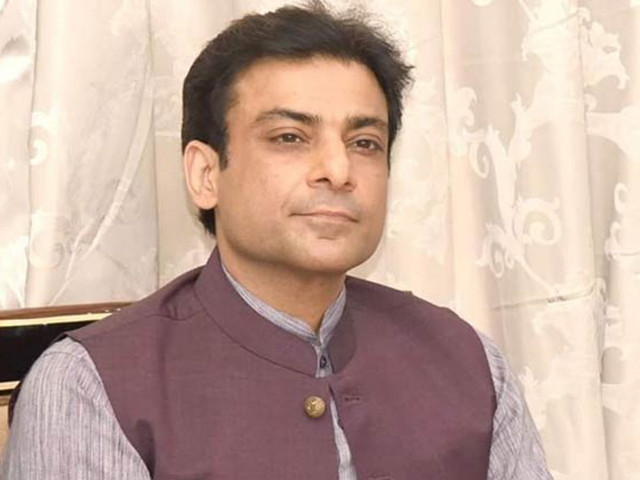
Pakistan Muslim League-Nawaz (PML-N) leader Hamza Shehbaz has requested the Lahore High Court (LHC) to direct the Punjab governor to administer oath to him as chief minister to avoid a constitutional crisis in the province.
He cited the chief secretary and governor as respondents in the petition.
The petitioner stated that he had been elected as chief minister of Punjab in the provincial assembly session held on April 16 under LHC’s direction. In the election for the CM’s slot, he secured 197 votes out of 371.
He contended that he had secured majority of votes, so he was declared elected as the chief minister.
The petitioner stated that the acting speaker of the assembly at the time, Dost Muhammad Mazari, had forwarded copies of the election result to the governor to fulfil the requirements of Rule 21 of the Rules of Procedure.
He alleged that the governor was reluctant to administer him oath because of vested interests.
He contended that it was constitutional convention that a chief minister-elect was offered oath on the day of his election by the governor without any delay or failure.
However, the governor had not summoned the petitioner to take oath in disregard of the Constitution and constitutional convention, he complained.
The petitioner alleged that the chief secretary was a former worker of the Pakistan Tehreek-e-Insaf (PTI) and added that it was unfortunate to state that he was bent upon creating a constitutional crisis.
He said the controversial moves on one hand ridiculed the spirit of the constitutional commands and parliamentary democracy, and on the other had exposed the people of the province to further economic and political turmoil by bringing the executive machinery of the province to a grinding halt.
The petitioner contended that the office of governor was a symbol of the federation and unity.
The very essence of the office is to protect the Constitution and head the provincial executive.
He submitted that the position of the president as the head of state and of the governor as the head of the province were like that of the English constitutional monarch, and except when the Constitution provides otherwise expressly or by necessary implication, they cannot act on their own initiative but must act in accordance with the advice of the prime minister or the chief minister.
The governor in the performance of his functions is bound to act on the advice of the chief minister or his cabinet, but this is subject to the provisions of the Constitution.
Thus, where a constitutional provision clearly designates a particular obligation in no unclear terms, the governor is duty bound to perform it in the manner defined in the Constitution, the petition read.
Article 130(5) imposes a mandatory obligation upon the governor in which he has no discretion to act in any manner other than what has been clearly specified.
Any deviation for whatsoever reason that may be, would constitute a violation of the clear obligation laid down in Clause (5) of Article 130 of the Constitution," it added.
Published in The Express Tribune, April 20th, 2022.





1725967717-0/Untitled-design-(3)1725967717-0-165x106.webp)

1730564373-0/Express-Tribune-Web-(19)1730564373-0-270x192.webp)


1730533347-0/Untitled-design-(85)1730533347-0-270x192.webp)







COMMENTS (1)
Comments are moderated and generally will be posted if they are on-topic and not abusive.
For more information, please see our Comments FAQ